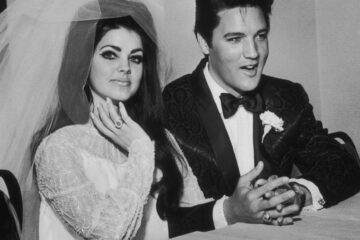When The Beatles landed in America in 1964, their arrival was nothing short of historic. The band’s infectious charm and groundbreaking sound captured the hearts of millions. Yet, amid the euphoria of Beatlemania, John Lennon harbored a private unease. He worried that his outspoken political views, sometimes interpreted as controversial or pro-communist, might provoke backlash in the United States.
Despite Lennon’s concerns, the band was greeted with unparalleled enthusiasm. Their performance on The Ed Sullivan Show became an iconic cultural moment, with their upbeat single “I Want to Hold Your Hand” cementing their reputation as the lovable pop icons of the 1960s. For much of their early career, The Beatles’ music celebrated love, fun, and connection, leaving overt political commentary largely unexplored.
However, Lennon’s deeper desire to use music as a medium for truth-telling was no secret. Songs like “Help!” offered glimpses into his introspective and honest songwriting. In discussing the song, Lennon once said, “Because I meant it, it’s real. The lyric is as good now as it was then… It was just me singing ‘help,’ and I meant it, you know.”
It wasn’t until 1968 that The Beatles released their first overtly political song, “Revolution,” during the height of the Vietnam War. Written while the band was in India, the track served as Lennon’s response to the global unrest and protests of the era. Yet, instead of rallying listeners with fiery calls to action, “Revolution” offered a surprisingly nuanced and restrained perspective.
The song’s lyrics—“You say you want a revolution / Well, you know / We all want to change the world”—express a cautious skepticism toward radical upheaval. This tempered stance, while reflective of Lennon’s evolving philosophy, left some listeners feeling the song lacked the punch of contemporaneous protest anthems. For instance, The Rolling Stones’ provocative “Sympathy for the Devil” provided a stark contrast, embracing a more audacious and confrontational tone.
Yoko Ono later shed light on Lennon’s mindset, explaining his preference for peaceful evolution over violent revolution. “John’s idea of revolution was that he did not want to create the situation where when you destroy statues, you become a statue,” Ono said. “He preferred evolution. So you have to take a peaceful method to get peace rather than you don’t care what method you take to get peace.”
In retrospect, “Revolution” may not match the visceral intensity of other 1960s protest songs, but its thoughtful approach remains compelling. It captures Lennon’s belief in constructive change over destructive rebellion—a sentiment that continues to resonate in today’s complex world. Rather than being “anti-revolutionary,” the song challenges us to rethink what true revolution might look like.
What are your thoughts on “Revolution”? Was it too restrained, or does its message of peaceful change still strike a chord today? Share your views in the comments below!



